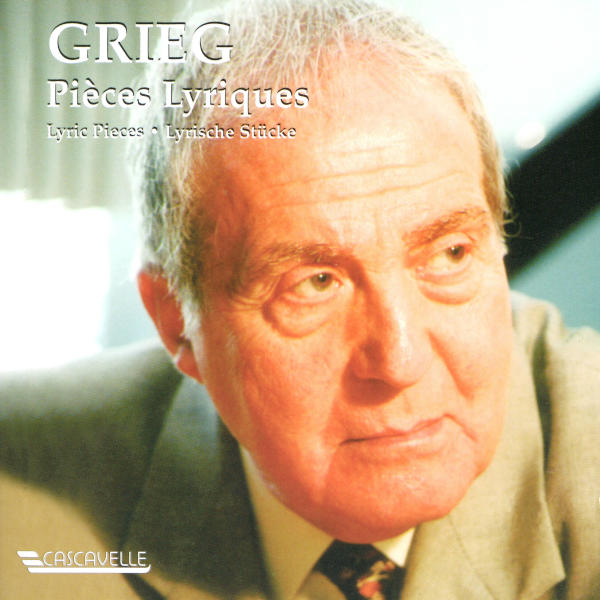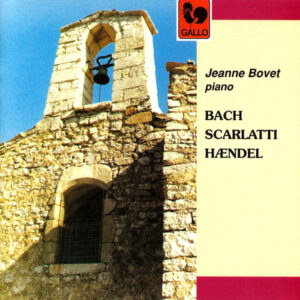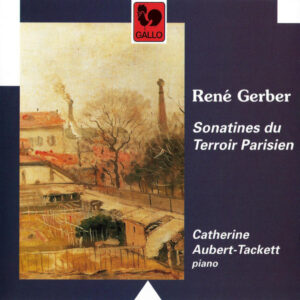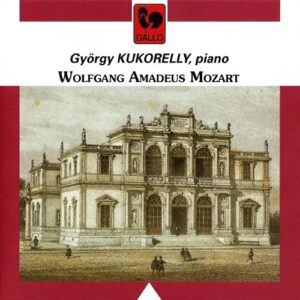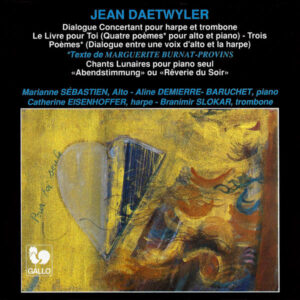Extraits / Excerpts
Edvard Grieg: Lyric Pieces - Aldo Ciccolini (3 CD)
Edvard Grieg: Lyric Pieces – Aldo Ciccolini
CD 1:
Edvard GRIEG: Lyric Pieces, Book 1, Op. 12: I. Arietta – II. Valse (Waltz) – III. Chant du gardien de nuit (Watchman’s Song) – IV. Danse des fées (Elves’ Dance) – V. Chant populaire (Folk Tune) – VI. Mélodie norvégienne (Norwegian Melody) – VII. Feuille d’album (Albumleaf) – VIII. Chant national (National Song) – Lyric Pieces, Book 2, Op. 38: I. Berceuse (Lullaby) – II. Chant populaire (Folk Tune) – III. Mélodie (Melody) – IV. Halling – V. Springdans (Leaping Dance) – VI. Elégie (Elegy) – VII. Valse (Waltz) – VIII. Canon – Lyric Pieces, Book 3, Op. 43: I. Papillon (Butterfly) – II. Voyageur solitaire (Lonely Wanderer) – III. Au pays natal (In the Homeland) – IV. Petit oiseau (Little Bird) – V. Erotique (Erotik) – VI. Au printemps (Spring Time) – Lyric Pieces, Book 4, Op. 47: I. Valse-impromptu – II. Feuille d’album (Albumleaf) – III. Mélodie (Melody) – IV. Halling – V. Mélancolie (Melancholy) – VI. Springdans (Leaping Dance) – VII. Elégie (Elegy).
CD 2:
Edvard GRIEG: Lyric Pieces, Book 5, Op. 54: I. Le berger (Herdboy) – II. Marche des paysans norvégiens (Norwegian Peasant March) – III. Marche des nains (March of the Trolls) – IV. Notturno – V. Scherzo – VI. Sonnerie des cloches (Bellringing) – Lyric Pieces, Book 6, Op. 57: I. Tombée du jour (Vanished Days) – II. Gade – III. Illusion – IV. Secret – V. Elle danse (She Dances) – VI. Mal du pays (Homesick) – Lyric Pieces, Book 7, Op. 62: I. Sylphe – II. Gratitude – III. Sérénade française (French Serenade) – IV. Ruisselet (Brooklet) – V. Fantôme (Phantom) – VI. Vers la patrie (Homeward).
CD 3:
Edvard GRIEG: Lyric Pieces, Book 8, Op. 65: I. Des années de la jeunesse (From Years of Youth) – II. Chant du paysan (Peasant’s Song) – III. Mélancolie (Melancholy) – IV. Salon – V. Nervure de feuille (Veined Leaf) – VI. Jour de noces à Troldhaugen (Wedding Day at Trolldhaugen) – Lyric Pieces, Book 9, Op. 68: I. Chant des marins (Sailor’s Song) – II. Menuet de grand’mère (Grandmother’s Minuet) – III. A tes pieds (At Your Feet) – IV. Soir en haute montagne (Evening in the Mountains) – V. Au berceau (Cradle Song) – VI. Valse mélancolique (Melancholy Waltz) – Lyric Pieces, Book 10, Op. 71: I. Il était une fois (Once Upon a Time) – II. Soir d’été (Summer Evening) – III. Lutin (Puck) – IV. La paix des bois (Peace of the Woods) – V. Halling – VI. Passé (Gone) – VII. Souvenirs (Remembrance).
Aldo Ciccolini, piano
In 1905, Norway, formerly separated from Denmark but for a long time under the control of Sweden, became independent. Music, at that time, carried the people’s national conscience. Verdi’s cause was a fact, and a few years earlier, Franz Liszt and Chopin had fiercely struggled in favor of their countries. Eduard Hagerup Grieg was born in Bergen, and we can easily imagine the joy and the feeling of exhilaration he felt after having so long fought for Norway’s sovereignty.
Grieg was born in 1843. At the age of fifteen, he chose to study music in Leipzig. He received an excellent education starting in the fall of 1858 and left the academy four years later as an accomplished musician. He was ready to build a great body of work. The young man married his cousin, Nina Hagerup, an opera singer, and they lived in Copenhagen. As most of his contemporaries, he was under the influence of romantic music, which was being transformed by the young German composers. But very soon his desire to conceive a typically Norwegian music took over. According to the tastes of those times, he was interested in folk songs, in popular melodies, encouraged by Rikard Nordraak (who wrote Norway’s national anthem). Grieg settled down in Oslo (at that time still named Christiania) in 1866 and started composing.
In 1867 he wrote the first lyric pieces, a series of short but ambitious pieces: ten volumes were composed by 1901. A sort of musical fresco? The logbook of a man who worked incessantly, harvesting glory when he only wished to touch the essence of art itself.
It is customary, when speaking of his lyric pieces, to evoke Chopin’s memory. Doubtless, through his great energy, melodic brilliance, or his vivacity, Grieg has attained his model’s virtuosity. But as the years went by, he freed himself and marked his time with his harmonic inventions.
He was inspired by bells — as we can see from many titles — “Papillon”, “Petit oiseau”, “Sonnerie de cloches”, “Ruisselet”, or even “Voyageur solitaire” and full of desire for patriotic affirmation — “Mélodie Norvégienne”, “Chant National”, “Au pays natal”, “Marche des paysans norvégiens”.
Such an inclination perhaps originates from the conditions in which these pieces were written. Grieg’s career was mainly that of a concert performer and a teacher, and he composed during the summer, in the heart of mountains showered with light. We must take into account what the love for walks, source of meditation and contemplation, reveals of a return to his roots in a time when industry was changing the face of Europe. Sometimes an innovator, Grieg expressed a widely shared uneasiness in front of the movements of his time. A feeling of loss suffuses a great number of lyrical pieces.
Where do the thoughts of a man wander, who at the autumn of his life chooses to play the “Pièces lyriques”? Aldo Ciccolini once followed Grieg’s paths — “La Ballade en sol mineur” and already a few pages of the “Pièces lyriques”. His companions were Schubert and Chabrier, he gave a new youth to Satie, was friendly with Rossini and Chopin. Does he remember his exceptional interpretation of “Années de Pèlerinage”? It is not to be excluded. Liszt’s masterpiece opens so many windows on Grieg’s adventure. This intimate energy allows him to play short pieces without the fear of losing himself. The constraints imposed by this work vanish, with the enchantment of the notes and the coherence of the work. Aldo Ciccolini knows how to balance intelligence and sensitivity, respecting the meaning of a musical text without flowing into pathos. He loves to meditate beside these composers — he seems to think that Chopin is the great master — who know how to keep at equal distance the swaying of the heart and the arithmetic of the mind. He turns Grieg’s pages the way that days go by, full of tender light. A touch of fantasy is hidden in the heart of meditation. And we cannot help thinking that the pianist confides much of himself in the midst of these notes.
Frédérick Casadesus
- Categories
- Composers
- Interprets
- Booklet
